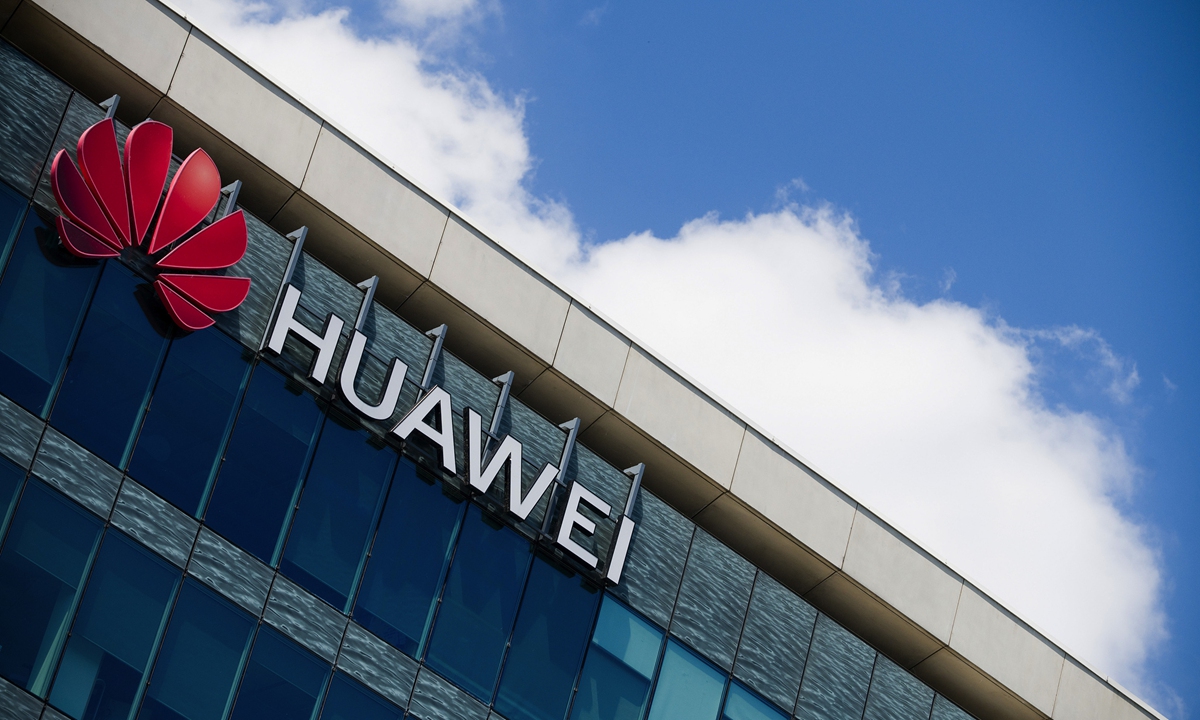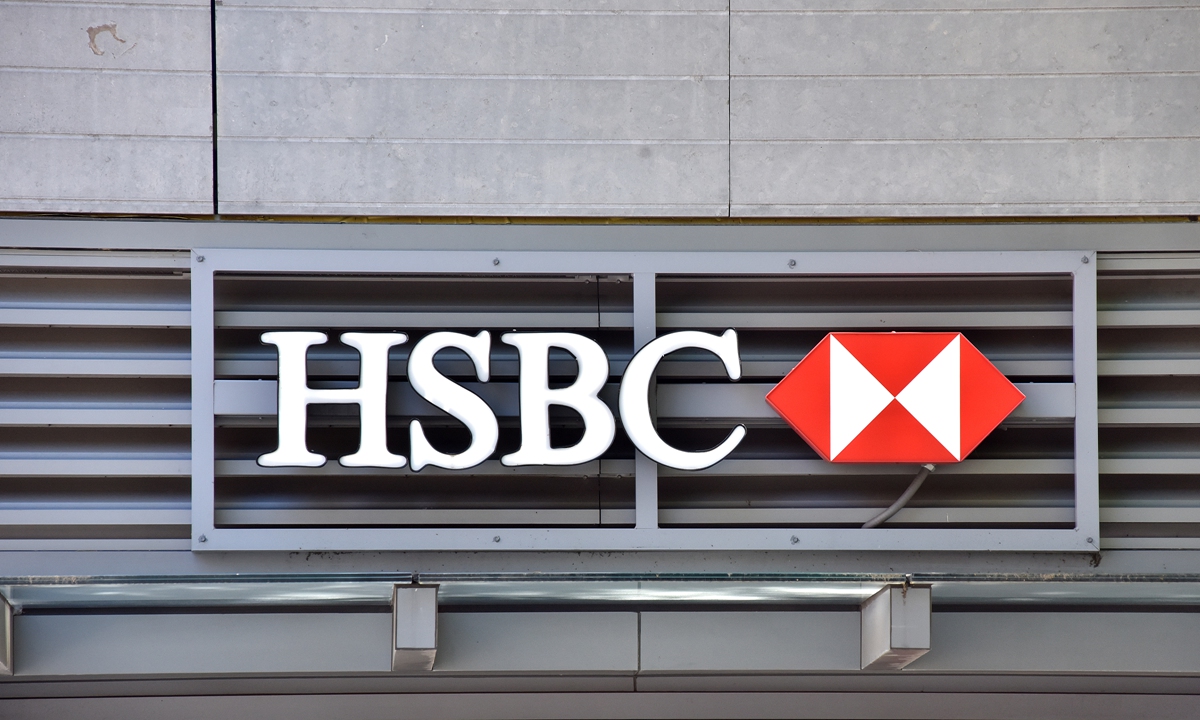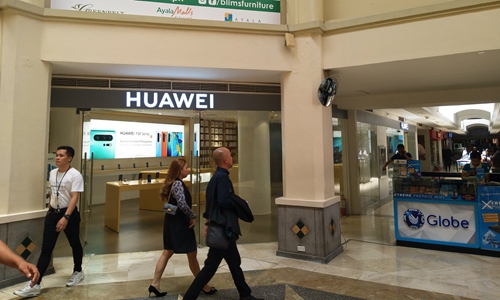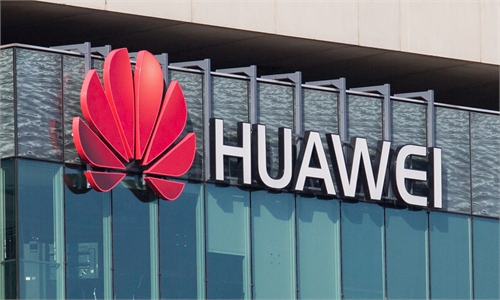
Huawei. Photo: VCG
New evidence Huawei has provided to a Canadian court shows how HSBC, the London-headquartered multinational bank, conspired with the US Department of Justice to set a "political trap" for Huawei and gave false testimony to the court, documents unveiled on Friday showed.
This evidence could drag the British bank - which is already facing growing controversy due to a series of misdeeds and its swaying stance over key issues in China - into a more dangerous situation, and it could become the very first to be targeted if China plans to retaliate, amid deteriorating China-UK ties, said observers.
The new evidence shows how HSBC deliberately set up a trap, pieced together materials and fabricated evidence, to frame Huawei, which may also bury the lender's reputation and prospects in the industry, said analysts.

HSBC. Photo: VCG
According to the new evidence, HSBC made large profits doing business with Huawei and understood the Chinese company's relationship with Skycom, as there was a large amount of correspondence showing a normal business partnership. This evidence contradicted grounds for charging Huawei's CFO Meng Wanzhou. The US accuses Meng of defrauding HSBC into violating US sanctions against Iran by failing to disclose the relationship between Huawei and Skycom.
More specifically, Meng is accused of lying to an HSBC executive in Hong Kong in August 2013 about Huawei's relationship with Skycom. However, the evidence indicated that HSBC understood this relationship but intentionally sold out its customer's confidential business documents to the US side so that the US government could overlook the British bank's own misconduct and not punish it under the 2012 Deferred Prosecution Agreement.
In other words, HSBC sold out the Chinese company and colluded with the US government in depicting Huawei as the one responsible for violating the sanctions.
If Huawei's evidence against the lender is proven to be true, the charges against Meng Wanzhou will no longer have any foundation, and HSBC should be prepared for a "harsh punishment" in China, such as being sued in Chinese courts, one Beijing-based observer, who spoke on condition of anonymity, told the Global Times on Friday.
The evidence also comes amid growing tensions between China and the UK. London has just banned the Chinese telecom equipment provider from the construction of the country's 5G network last week - a decision China said it is "seriously concerned" about and will "comprehensively assess."

Meng Wanzhou Photo: VCG
The Chinese Foreign Ministry accused the UK of using "fabricated risks" as an excuse to cooperate with the Trump administration in discriminating against and excluding Chinese firms, prompting speculation that Beijing could take countermeasures against London, and HSBC, the London-based bank, could become the first target given its previous misbehavior.
"China has been evaluating putting the firm onto the country's unreliable entity list, which is entirely reasonable," Cui Hongjian, the director of the Department of European Studies at the China Institute of International Studies, told the Global Times on Friday.
The firm, which set a trap for a Chinese firm while generating almost 80 percent of its profits from China, is more than eligible to be put on the list, said analysts, noting that the bank has every reason to worry about its situation amid deteriorating China-UK ties.
In May this year, Hong Kong's former Chief Executive Leung Chun-ying lambasted HSBC for not publicly voicing its support for the enactment of the national security legislation in the city.
"In terms of political issues, this self-proclaimed British bank can't make money from China while following Western countries in doing things that damage China's sovereignty, dignity, and people's feelings."
"We need to let the UK government, politicians, and British companies like HSBC know which side their bread is buttered," he said.
The aforementioned industry observer said that even if the Chinese government chooses not to act immediately, Chinese people's sentiments toward the firm will bring it to the edge of a cliff.
"People will definitely not welcome foreign banks like HSBC, which cooperate with US imperialism's global hegemony for its own interests, and substantially harm the development of China's high technology," said the observer.
"Industry players will also avoid the bank given its bad conduct in the Huawei case, and may wonder: who's the next victim after Huawei?" the observer said.
On Friday, the Chinese banking and insurance regulator in Shenzhen, South China's Guangdong Province said it approved a request by HSBC to shut down its branch in Shenzhen's Longgang district.
Chinese netizens applauded the closure, urging the Chinese government to sanction the firm as soon as possible, and remove it from the Chinese market.
"Closure of a single branch could indicate the bank may not be that 'competitive' in the local market," Wang Jun, the chief economist at Zhongyuan Bank, told the Global Times on Friday.
Nevertheless, observers cautioned this could be the start of a deeper downfall for the London-based bank, and may not be reversed.
HSBC previously confirmed with the Global Times in June that it would resume a restructuring plan to cut as many as 35,000 jobs in the medium term, and freeze almost all external hiring. An HSBC representative maintained that the plan, first announced in February, was in response to the "big environment" rather than the Huawei case.
HSBC will likely face more layoffs in the coming months, and could even lose the Chinese market altogether, analysts forecast.




